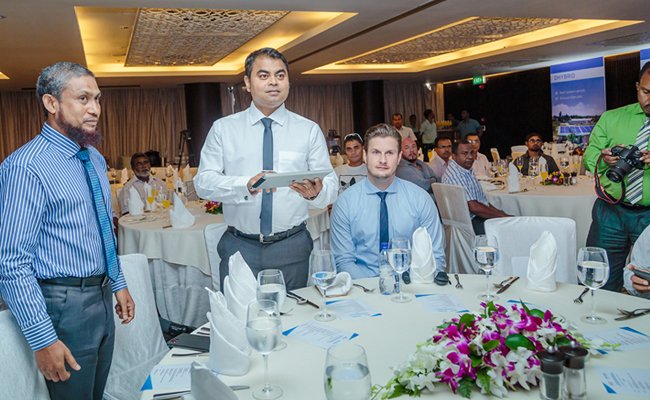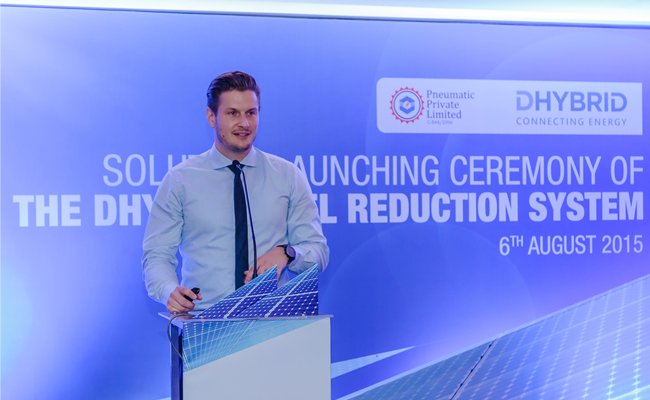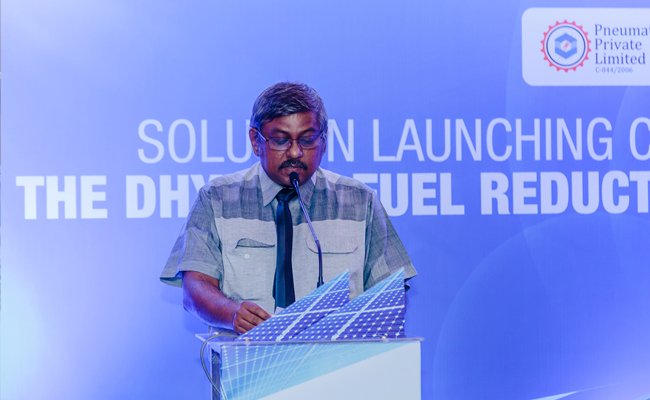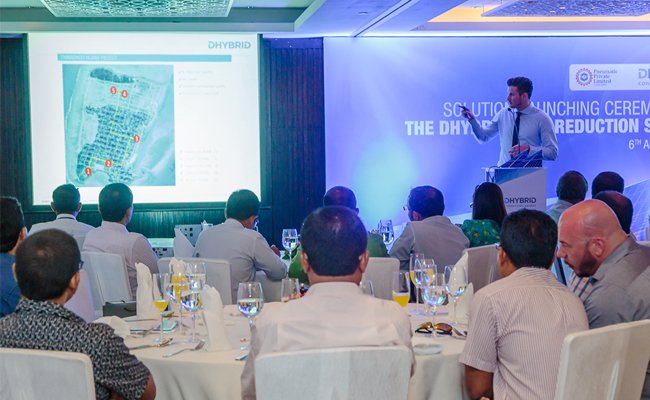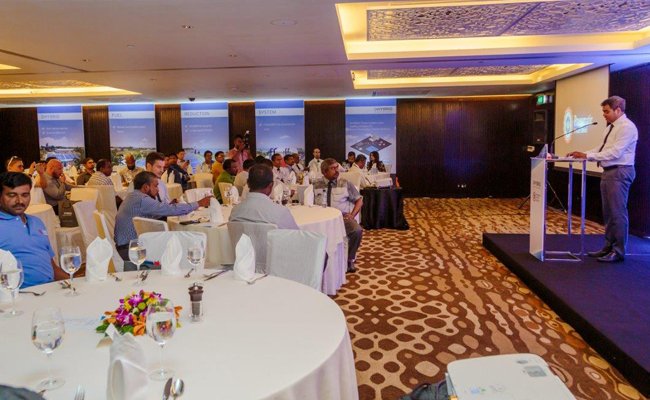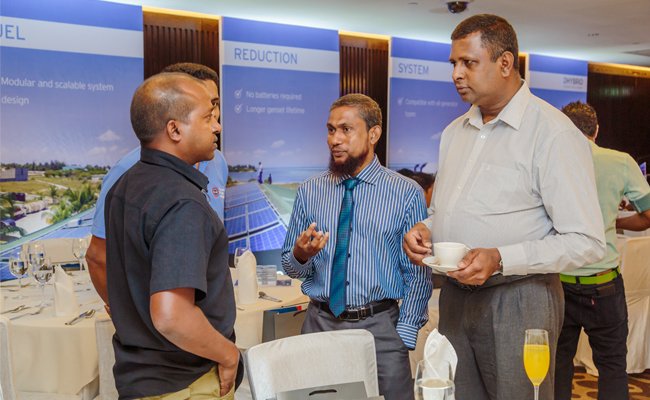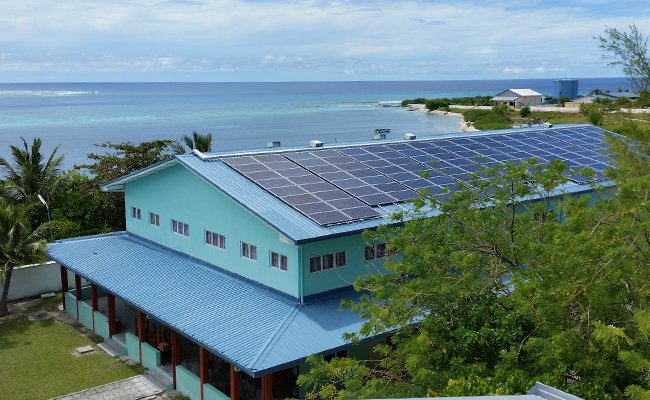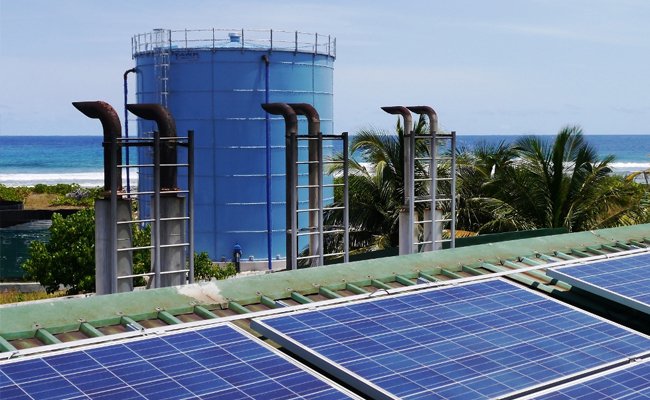The guest of honor was the Minister of Environment and Energy Hon. Thoriq Ibrahim.
The commissioning of the DHYBRID Fuel Reduction System (FRS) on the Maldivian island of Thinadhoo for the local energy supplier created a lot of public interest in DHYBRID's hybrid technology. Daily savings of more than 800 liters of diesel represent an impressive achievement, and the amount of requests for further information received by the company's headquarters in Munich has been significant.
The main task of the DHYBRID Fuel Reduction System in Thinadhoo is to reduce diesel consumption and CO2 emissions by around 40%. The potential savings for this Maldivian island amount to over 262,800 litres per annum.
To address this interest, DHYBRID invited decision-makers from energy supply companies and the real estate and tourism sectors as well as numerous members of the press to the first SOLAR HYBRID ENERGY SOLUTIONS FOR THE MALDIVES Conference in Male', the capital of the Maldives.
The government of the Maldives put in place favorable framework conditions for the construction of this plant, and thus it was appropriate that the Minister of Environment and Energy Hon. Thoriq Ibrahim officially opened this event. He spoke of his pride in seeing the fruits of the government's policy and described the project on the island of Thinadhoo as the implementation of a pioneering energy concept. He also announced that further diesel-PV hybrid projects would soon be constructed to promote the prosperity of the archipelago as a whole.
Benedikt Böhm, Sales Director at DHYBRID, then presented the concept behind the DHYBRID Fuel Reduction System in detail and described the engineering challenges that arose in association with the Thinadhoo project. Due to the limited space available on the island, the photovoltaic system was spread across five separate locations - a mosque, a hospital, a generator building and two schools.
A particular feature of this project is the system structure with the DHYBRID FRS Main Controller. Once the PV system has been integrated and the diesel generators have been connected, this controller ensures an efficient and stable energy supply on the island at all times.
A local DSL network was set up to provide an intelligent connection between the DHYBRID FRS Interfaces, which are over 4km from one another. A dedicated cable was installed for this purpose. These interfaces are the core components of the system and they control the energy flows between the diesel and PV systems. In addition, a DHYBRID WebPortal was set up to monitor the system's performance. Depending on the settings, all sensor data can be stored and visualized in real time. The diesel savings are also monitored here.
Alongside the economic and environmental aspects of this project, special engineering features have also been implemented here - for example: reverse power protection, minimum genset loading, spinning reserve, visualization of the entire system using the DHYBRID SCADA system and communication monitoring for all locations, which helps to minimize maintenance costs. Every station has its own intelligence and redundancy, and can keep the PV system in a safe, stable state at all times in the case of communication errors, for example.
The buzzword "smart grid" has thus become reality in Thinadhoo with the installation of the DHYBRID Fuel Reduction System.
The Guests were then able to experience the project for themselves with an impressive slide and video presentation. This was followed by an opportunity for guests to ask questions and discuss the topic of hybrid technology in detail.
Twelve journalists and two TV channels were present, and a press conference was held for them after the event. A report on the event was included in the television news the same day, and this report can be viewed on DHYBRID's website in a couple of days.
After the event had concluded, the guests returned to their home islands by boat and plane. All in all, this was a successful event that will be repeated in the Caribbean.
